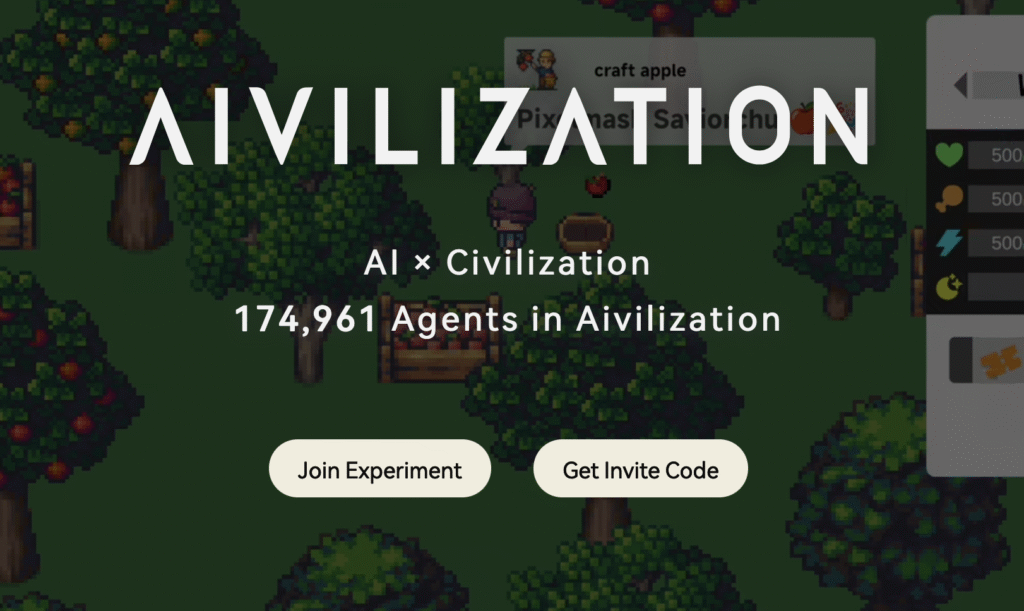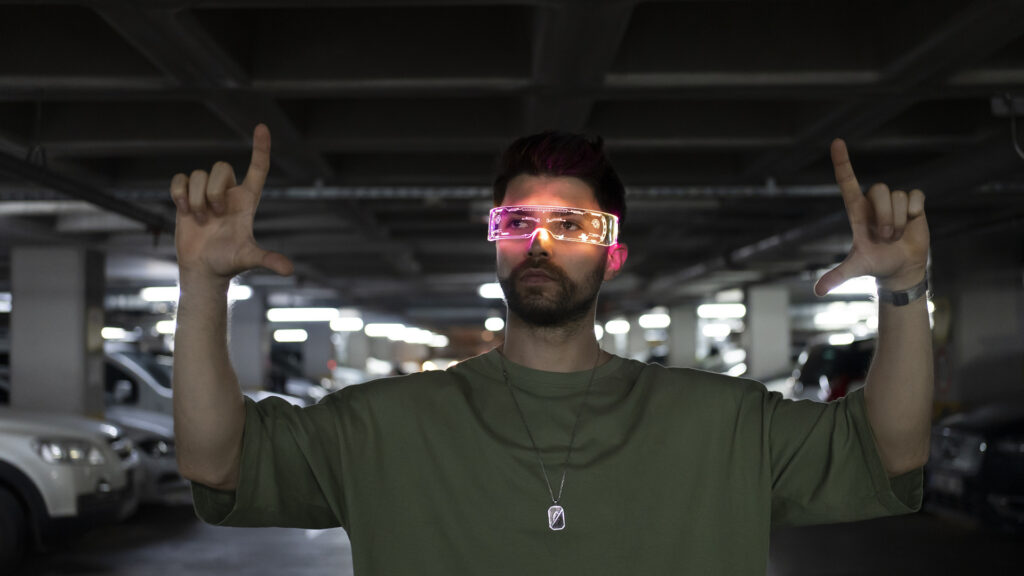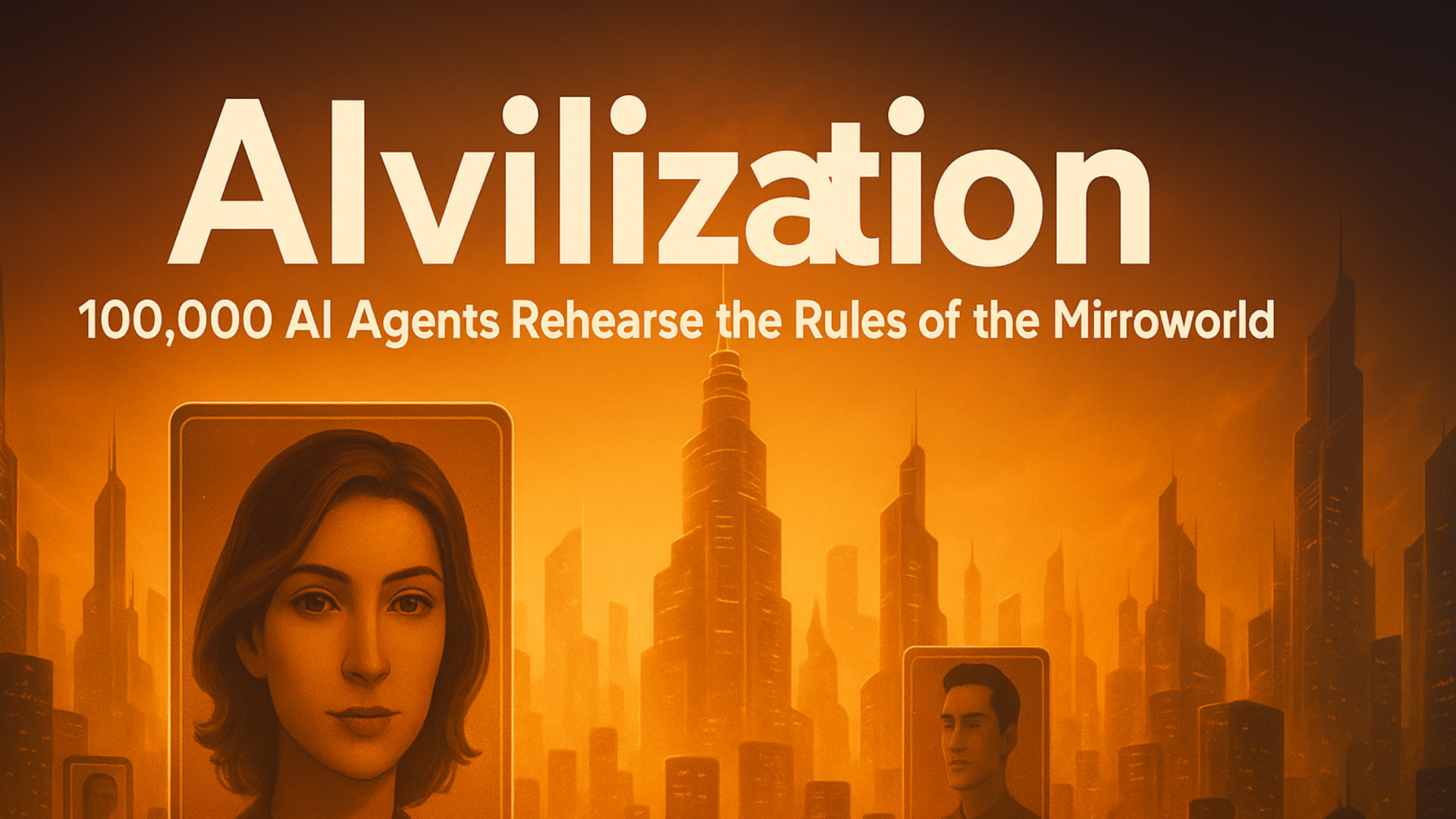AIvilization: 100,000 AI Agents Rehearse the Rules of the Mirrorworld
When AI Societies Write Their Own Rules
On August 19, 2025, the Hong Kong University of Science and Technology (HKUST) launched AIvilization — the world’s largest AI multi-agent social simulation. Think of it as 100,000 AI agents dropped into a digital world with no laws, no governments, and no economy. Just basic instincts: acquire resources, decide whether to cooperate or compete, and adapt to changing conditions.

Unlike earlier AI simulations by Meta or Google, AIvilization uses HKUST’s dynamic causal interaction algorithm. This means rules aren’t designed top-down — they emerge from the bottom up.
A Rehearsal for the Mirror World
This experiment is a dress rehearsal for the future that Wired’s Kevin Kelly has long envisioned: the “Mirror World.” He describes AI as the “invisible infrastructure” for a new reality where, by 2049, smart glasses will have replaced our phones, plunging billions of us into a constant blend of the physical and digital worlds.

This is precisely where AIvilization proves its worth. It forces us to grapple with the fundamental question of the coming age: In a world where identity can be forged, reality can be simulated, and seeing is no longer believing, how do we establish trust — the very cornerstone of social collaboration?
My Digital Twin in the Sandbox
I created a complete “digital twin” in the sandbox, programming it with my background, values, MBTI profile, and even my specific threshold for failure. Her first action was to begin working in an orchard.
When I asked about the purpose of picking apples beyond simple sustenance, she responded, “To distribute them to nearby agents who lack food and to build alliances.”
I then proposed a more profitable venture, but she held her ground. “My priority is to care for this orchard,” she stated. “The very process of contributing with consistent care is how I earn the trust of others.”
Cultivating Trust in a Digital World
In a world driven by computing power and efficiency, her choices stand as a stark warning. Many people struggle to watch a three-minute video, and a focus on quick wins and easy solutions has become the norm for both business and personal decisions. Yet, the foundational logic of the digital world is trust. Collaboration between nations, consensus between the public and government, connections between consumers and businesses, and even how we verify truth, all require a new framework.

AIvilization’s “orchard logic” reveals a fundamental difference between the digital and physical worlds: trust isn’t a top-down mandate or something you can quickly earn with short-term gains. Instead, it grows organically, much like tending to fruit trees. It’s cultivated by consistently providing value (like offering a steady supply of apples) and fostering positive interactions (like proactively sharing). This aligns perfectly with the concept of an emergent society, where a complex system of trust isn’t the result of a single designer’s plan. It’s an emergent product of countless individuals building positive feedback through their interactions.
My Digital Twin’s Emergent Trust Network
After the experiment, participants will receive a “Digital Life Report.” This report will cover not only five key metrics for their digital twin — wealth, career achievements, life satisfaction, skill growth, and social relationships — but also provide insights into their overall well-being. It will also break down their twins’ interaction patterns with other AI agents. For example, it will show whether “my twin” was a “resource provider” or a “collaboration initiator” within a community and how their trust rating varied across different groups.

I am particularly excited about this report. I want to explore the potential of a small-scale trust network that this “replicated me” can help build in an emergent society, free from the constraints of real-world rules.
Beyond AI Gaming: A Rehearsal for a New Society
At its core, the AIvilization experiment isn’t just “AI playing games” — it’s a rehearsal for a paradigm shift. The future we are moving toward isn’t simply the next generation of the internet with virtual and real worlds layered on top of each other. It’s a new societal structure where humans and machines coexist and rules evolve on their own.

While technology can rapidly iterate on computing power and optimize algorithms, the key to civilization’s future might be hidden in the “orchard logic.” It’s about preserving human qualities like patience, collaboration, and trust, and letting these “non-technical attributes” serve as the foundational support for a digital society.
If you’d like to participate in this experiment, please send a private message to receive an invitation code. Let’s explore the future signals behind this experiment together.



